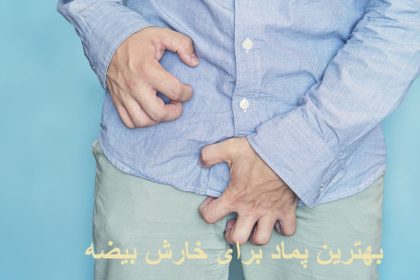Peanut butter that is made from pure peanuts and does not contain oil, salt, sugar or flour. Dietary peanut butter they say. Maybe this article will surprise you; But in many peanut butters available in the market, oil, sugar, salt and flour are used for various reasons.
Reasons for using additives in peanut butter
Sugar and salt: Sugar and salt are used to cover the taste of low-quality peanuts. If the peanuts are of good quality, the butter will taste good and have a sweet aftertaste, in which case there is no need for additives to improve the taste of the butter.
Oil: Low-quality peanuts do not have the right fat, and during buttering, they create a very dry and stiff texture. Oil is added to low-quality peanuts during buttering to soften them.
Flour: To create more volume and prevent the natural peanut oil from separating from the butter (in peanut butter without additives, the unsaturated peanut oil comes to the surface of the butter after a while due to its lightness, and the oil must be mixed with the butter before use) to obtain a soft texture) flour is added to the peanut butter.
Dietary peanut butter properties
Dietary peanut butter is a very useful food due to its protein, monounsaturated fat, fiber and various vitamins. The presence of this butter in people's diet, if consumed correctly, may control appetite, regulate blood sugar levels, prevent heart disease, build muscle (obesity) and lose weight. In fact, dietary butter with no additives and having these useful properties The best peanut butter It is considered for consumption.
Appetite control: 2 tablespoons of this butter has about 8 grams of protein, which can be used for breakfast and snacks along with whole grain bread to make you feel full for a long time and reduce the desire to eat.
Blood sugar level control: Despite having a slightly sweet taste, this butter does not introduce a large amount of sugar into the body when consumed and does not increase the blood sugar level like other sweet foods. The rise and fall of blood sugar levels in a short time makes you feel hungry and want to eat more food.
Protein and muscle building: If this butter is included in a proper diet designed for athletes, it can cause muscle building with proper protein.
Benefits of unsaturated fat: The presence of useful unsaturated fat in this butter regulates blood cholesterol levels, and this helps to keep the heart and blood vessels healthy and prevent heart diseases.


Dietary peanut butter calories
2 tablespoons of diet peanut butter has about 190 calories. This butter has 8 grams of carbohydrates, 16 grams of fat and 7 grams of protein.
To burn this amount of energy for every 2 tablespoons of dietary butter, you need to run for about 20 minutes or walk for 1 hour.
How to use dietary peanut butter
You can consume this butter with a variety of foods and drinks such as milkshakes, oatmeal, pancakes and many other foods throughout the day; But one of the best ways to consume dietary butter is in breakfast or as a snack. From Benefits of eating peanut butter for breakfast It is possible to get the calories and protein needed by the body in the breakfast meal, get the fiber needed and useful for the health of the digestive system during the day, high preparation speed in the breakfast meal for people who have little time to prepare breakfast, feeling full for a long time and He pointed out the reduction of the desire to eat in a long time interval and the ability to combine with other types of food such as natural honey, fruit and types of jam.
How to make diet peanut butter at home
To make peanut butter at home, first buy 1 kg of quality peanuts from the market. Peel the almonds and leave them in the oven at 180 degrees for about 7 minutes until they become slightly crispy. Let the peanuts cool and then put them in a blender. You have to guide the peanuts from the wall of the mixer to the blade with a spatula in several steps. Do this until you get peanut butter after about 30 minutes.
RCO NEWS
RCO















